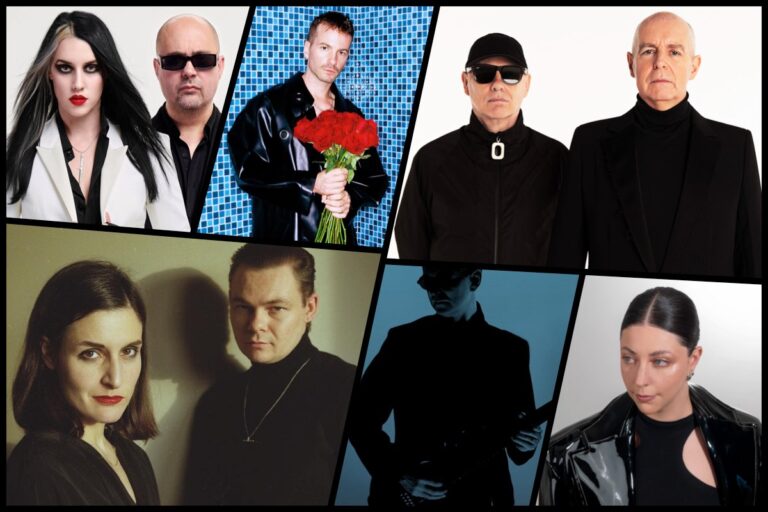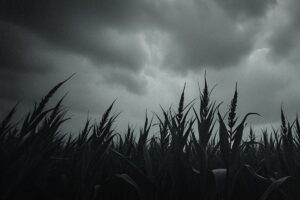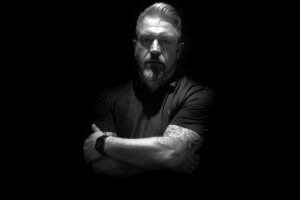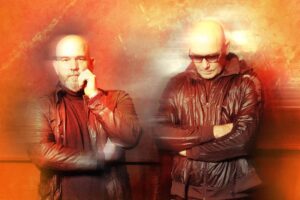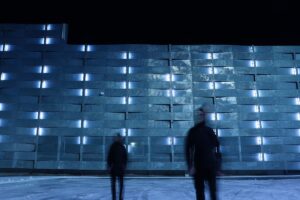My end-of-year coverage continues with one of my favorite traditions: the annual roundup of synthpop cover songs. Covers are always fun, whether they honor a classic or put an unexpected spin on something familiar.
Last year, I featured 50 cover songs, and there are enough to do that again this year. However, I’ve decided to limit this year’s list to the 25 most interesting cover songs of 2024. Please note: I’m not including any covers of Depeche Mode this year—not because I don’t love them, but because there are just too many of them and they’re a bit too obvious. As always, the songs are listed alphabetically by artists’ names.
In case you missed it, check out my roundup of notable quotes from synthpop artists I interviewed this year. Coming soon: the year’s best music videos and my pick for best new synthpop artist of the year.
AGNIS – “Toxic”
“Toxic” was originally released by American singer and dancer Britney Spears in 2004. It won a Grammy—Britney Spears’ first Grammy—for Best Dance Recording.
Alex Braun & Rob Dust – “Hit That Perfect Beat”
“Hit That Perfect Beat” was originally released by British synthpop band Bronski Beat in 1985. It was their first single with new vocalist John Foster, who replaced Jimmy Somerville.
BlakLight – “Reptile”
“Reptile” was originally released by Australian alternative rock band The Church in 1988. It was inspired by a real-life experience lead singer Steve Kilbey had with a lizard.
Buzz Kull – “Somebody’s Watching Me”
“Somebody’s Watching Me” was originally released by American singer Rockwell in 1983. The original song featured guest vocals by Michael Jackson.
Engraved Garden – “Here Comes the Rain Again”
“Here Comes the Rain Again” was originally released by British duo Eurythmics in 1983. Annie Lennox and David Stewart wrote it while staying at the Mayflower hotel in New York on an overcast day.
Fonohead – “True Faith”
“True Faith” was originally released by the influential English band New Order in 1987. New Order singer Bernard Sumner says the song is about heroin addiction, but bassist Peter Hook adamantly denies the connection.
For All the Emptiness – “Papillon”
“Papillon” was originally released by English rock band Editors in 2009. Its title references a semi-autographical novel by Henri Charrière about one of the most famous prison breaks in history.
Future Analog – “Clocks”
“Clocks” was originally released by British rock band Coldplay in 2003. Coldplay singer Chris Martin wrote the lyrics and the iconic piano riff for “Clocks” in just 15 minutes.
Kill Shelter – “She’s In Parties”
“She’s in Parties” was originally released by English gothic rock band Bauhaus in 1983. It was Bauhaus’ final single before their 1984 breakup. Peter Murphy launched a solo career, and the remaining members formed Love and Rockets.
Lebanon Hanover – “Abracadabra”
“Abracadabra” was originally released by American rock group the Steve Miller Band in 1982. Steve Miller says the lyrics were inspired by Diana Ross and the Supremes, whom he met while performing on NBC’s music variety show “Hullabaloo” in the 1960s.
Martin Rudefelt (of Cyro) – “The Rhythm”
“The Rhythm” was originally released by Swedish synthpop duo Kite in 2013. This is one of my favorite Kite songs and is the only cover of a Kite song I’ve ever heard.
Me & Melancholy – “There Is a Light That Never Goes Out”
“There Is a Light That Never Goes Out” was originally released by English rock band The Smiths in 1986. The string arrangement is actually synthesized, a budget-friendly choice Morrissey initially resisted but ultimately embraced.
Minuit Machine – “If I Had a Heart”
“If I Had a Heart” was originally released in 2009 by Fever Ray, a new solo project from Karin Dreijer of the Knife. It was their debut track as Fever Ray and gained widespread recognition as the opening theme for the TV show “Vikings.”
Moist (feat. Alex Eklund) – “With or Without You”
“With or Without You” was originally released by Irish rock band U2 in 1987. The Edge created the song’s signature sound using a distortion device called an “Infinite Guitar.”
Night Drive – “I Wanna Be Adored”
“I Wanna Be Adored” was originally released by English rock band The Stone Roses in 1989. They were one of the pioneering groups of the Madchester movement in the late 1980s, and “I Wanna Be Adored” is their biggest hit.
Night Club – “The Lunatics (Have Taken Over the Asylum)”
“The Lunatics (Have Taken Over the Asylum)” was originally released by English New Wave band Fun Boy Three in 1981. The song’s writer, Terry Hall, wrote it about Ronald Reagan and nuclear war.
Pale Fortress – “Running Up That Hill”
“Running Up That Hill” was originally released by English singer-songwriter Kate Bush in 1985. It gained renewed attention in 2022 after featuring in the fourth season of the Netflix series “Stranger Things.”
Pet Shop Boys – “All the Young Dudes”
“All the Young Dudes” was originally released by British rock band Mott the Hoople in 1972. It was written by David Bowie. He released his own version in 1995.
Promenade Cinema – “Cities in Dust”
“Cities in Dust” was originally released by British goth-rock band Siouxsie and the Banshees in 1985. The song was inspired by a visit to Pompeii, a city in southern Italy that was buried by the eruption of Mount Vesuvius in 79 AD.
PSYCHOSOMATIK – “Sin”
“Sin” was originally released by American industrial-rock band Nine Inch Nails in 1989 on their debut album, Pretty Hate Machine. When “Sin” was released as a single, it included Nine Inch Nails’ cover of “Get Down, Make Love” by Queen.
The Second Sight – “Send Me an Angel”
“Send Me an Angel” was originally released by Australian New Wave band Real Life in 1983. It was their first song and their biggest hit. The song has been covered by numerous artists, including Zeromancer and Gunship.
TR/ST (feat. Jake Shears) – “Being Boring”
“Being Boring” was originally released by British synthpop duo Pet Shop Boys in 1990. Neil Tennant wrote the song as an elegy for a close friend who died of AIDS. It is one of the most important songs about the AIDS crisis.
Traumsoldat feat. Carnival Of Dreams – “The Sparrows and the Nightingales”
“The Sparrows and the Nightingales” was originally released by German synthpop duo Wolfsheim in 1991. It is Wolfsheim’s best known song and a staple of goth-industrial club sets. Wolfsheim split in 2009 over personal differences when Peter Heppner launched a solo career.
Trevor Something – “All That She Wants”
“All That She Wants” was originally released by the Swedish pop group Ace of Base in 1992. Listeners like to argue over the song’s meaning because its lyrics are sorta confusing and nonsense—the members of Ace of Base didn’t quote get English colloquialisms.
Vogon Poetry & SCALA – “Street Spirit (Fade Out)”
“Street Spirit (Fade Out)” was originally released by English rock band Radiohead in 1995. It’s been covered many times by artists that include Peter Gabriel, The Darkness, and System of a Down drummer John Dolmayan.

